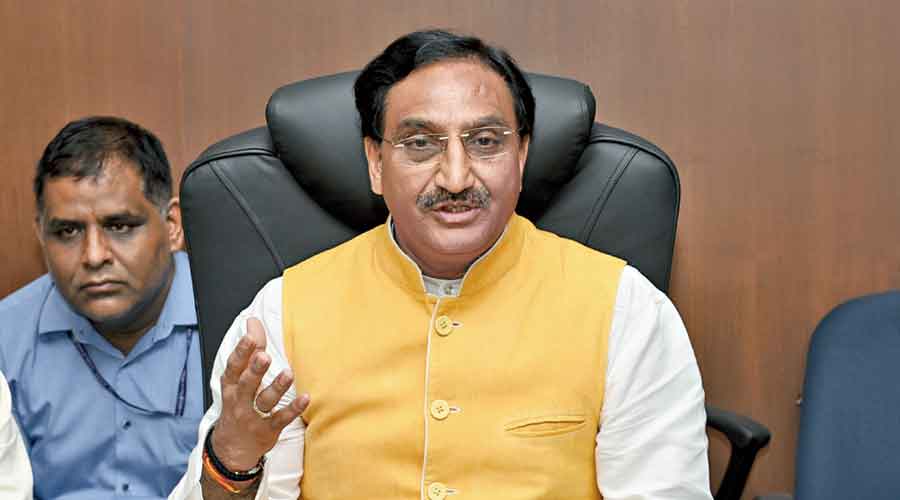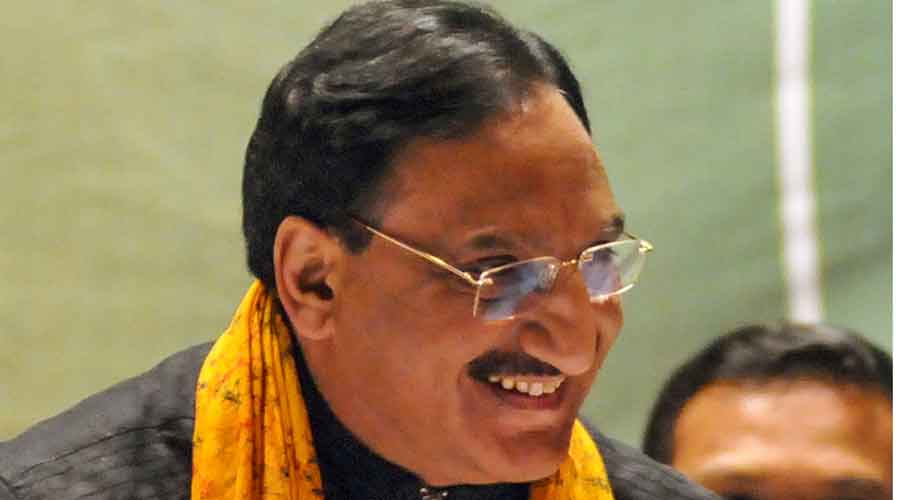Delays, opacity and a U-turn on a policy decision marked the 25-month tenure of Ramesh Pokhriyal, who resigned as Union education minister on Wednesday, academics said.
Among the examples they cited were the chronic delays in the appointment of IIT directors and central university vice-chancellors and, consequently, the ad-hoc running of institutions by acting heads, as well as the lack of transparency around selection processes and their cancellations.
For instance, the education ministry had on November 26, 2019, advertised the posts of directors for the IITs in Bhubaneswar, Patna and Ropar. The selection processes for all three were carried out simultaneously. On July 14 last year, a panel headed by Pokhriyal held online interviews of the shortlisted candidates.
Six months had passed since the interview when IIT Ropar got its new director in January. The other two are still waiting — almost a year on — amid a haze on the fate and progress of the appointment process.
“Such delays never happened before at premier institutions like the IITs. The absence of a regular director affects the recruitment of faculty, planning of academic activities amid the pandemic, and development activities,” an IIT Bhubaneswar teacher said.
Normally, issuing the appointment letter should not take more than two weeks after the interview, with the education ministry forwarding the names and the President — the Visitor of central universities and the IITs — clearing them promptly.
While Pokhriyal must carry the can for the delays, government sources have blamed the Prime Minister’s Office, saying it takes all the decisions.
If the selection process fails to find a suitable candidate, the entire exercise has to start again.
However, after a Pokhriyal-led committee interviewed would-be directors for the IITs in Mandi and Indore on December 26, 2019, the ministry cancelled the processes only in November 2020. The 11-month delay remains unexplained.
Delays in appointments have hamstrung the central universities too. As many as 20 of them are now headed by vice-chancellors-in-charge, among them eminent institutions like Delhi University, Jawaharlal Nehru University, Hyderabad University and Banaras Hindu University.
Deterrent delays
Two senior IIT teachers said the opacity around the appointments of academic heads for the IITs and central universities was discouraging academics of repute and experience from applying.
“The performance of an academic institution depends on who is leading it. But well-qualified academics with good personal conduct and leadership skills are not taking an interest because of the opacity of the appointment process,” a senior IIT functionary said.
Policy pirouette
In 2017, the education ministry (then HRD ministry) under Pokhriyal’s predecessor had asked the National Institute of Open Schooling to design an 18-month, distance-learning Diploma in Elementary Education course.
The idea was to help the nearly 13 lakh schoolteachers who lacked a degree or diploma in teaching, which the Right to Education Act had made mandatory.
But in 2019, the National Council for Teacher Education issued an order, with approval from Pokhriyal’s ministry, saying serving teachers who had earned their diploma through the 18-month course were ineligible from applying for new jobs. Last year, the order was withdrawn under court directions.
Textbook tardiness
After the National Education Policy was published in July last year, Pokhriyal’s ministry took 11 months to ask the NCERT to collaborate with its state counterparts and develop National Curriculum Frameworks, the key documents for the preparation of syllabuses and textbooks.
“The new textbooks cannot come before the 2024-25 academic session, by when the next government would be in place,” an NCERT official said.
In January this year, an email was sent to the education ministry seeking the reasons for the delays in appointments after interviews, and its reactions to the charges of opacity. The email remains unanswered.












